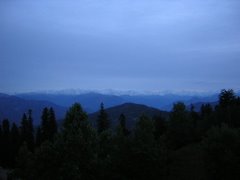Yesterday was Saraswati Poojai. I do not believe in poojas and gods. I am an atheist, typical of the generation which was influenced and shaped by the Dravidian social reformist movements in Tamilnadu.
Beyond my atheistic mindset, there is a secret image of Saraswati in my heart. I remember fondly the Saraswati Poojas in my childhood. The image of Saraswati as the goddess of learning, wisdom and arts had fascinated and inspired me as a child and has been etched strongly in my memory. I liked the picture of the goddess sitting on the white lotus flower with a book in the hand.
As a kid, I was fond of books and tried to read whatever I could get hold of and whenever I could. But my illiterate uncle, who brought me up did not believe in Saraswati. He worshipped Lakshmi, the goddess of wealth. He believed that pursuit of agriculture was the best way to invite Lakshmi into the home. Unknowingly my illiterate uncle believed in the Thirukkural..
தொழுதுண்டு பின்செல் பவர்.
The rest are those who follow behind)
I had access only to the school text books. No one bought non-text books in the village. There were no books at home in the house of my illiterate uncle and aunt. Neither my elementary school in Raramuthiraikottai nor my high school in Mariammankovil had libraries. Fortunately the village Panchayat Board building had some books including epics such as Ponniyin Selvan and Sivakamiyin Sabadam. But they had only some parts of the several volumes. So I would go to other village panchayat boards to get the missing parts. Poondi Pushpam college where I went after school had a large library. I was thrilled to read so many books and magazines outside my chemistry subject. I read so many Tamil poems... And I got carried away..I wanted to become a poet. In fact, I had applied for MA Tamil Literature in Pachaiyappa’s College, Madras. But my Tamil professor in Poondi college advised me against that and persuaded me to study MSc chemistry which would have more job opportunities.
While working as a junior lecturer in Pachaiyappas College, I used to carry non-chemistry books to the staff room for reading to prepare for the civil service examination. Some of my senior colleagues would laugh behind my back and thought that I was delusional. So I had to hide the general knowledge books from the colleagues.
I was lucky that my reading resulted in the selection to the Indian Foreign Service. During the whole career of thirty five years I had to constantly keep up reading every day to update my knowledge of international affairs. Posting in different countries every three years meant that I had to study and learn about different cultures, markets and political systems.
Since my retirement in 2012, I follow the advice of Bharathiar…
காலை எழுந்தவுடன் படிப்பு - பின்பு
கனிவு கொடுக்கும் நல்ல பாட்டு
மாலை முழுதும் விளையாட்டு - என்று
வழக்கப் படுத்திக்கொள்ளு பாப்பா.
(Reading in the morning
Listening to music later
Playing in the evening
Make this as the habit)
I read in the morning, play golf in the afternoon and listen to music in the evening with a drink, which Bharathi missed out mentioning..
I keep a little bronze idol of Saraswati on my desk which reminds me every day the importance and joy of reading and learning. But the more I read, the more I realise the wisdom of the Tamil poet Avvaiyar..
கற்றது கை மண் அளவு. கல்லாதது உலகளவு.
(what one has learnt is just handful of sand..what is more to learn is vast like the earth)





